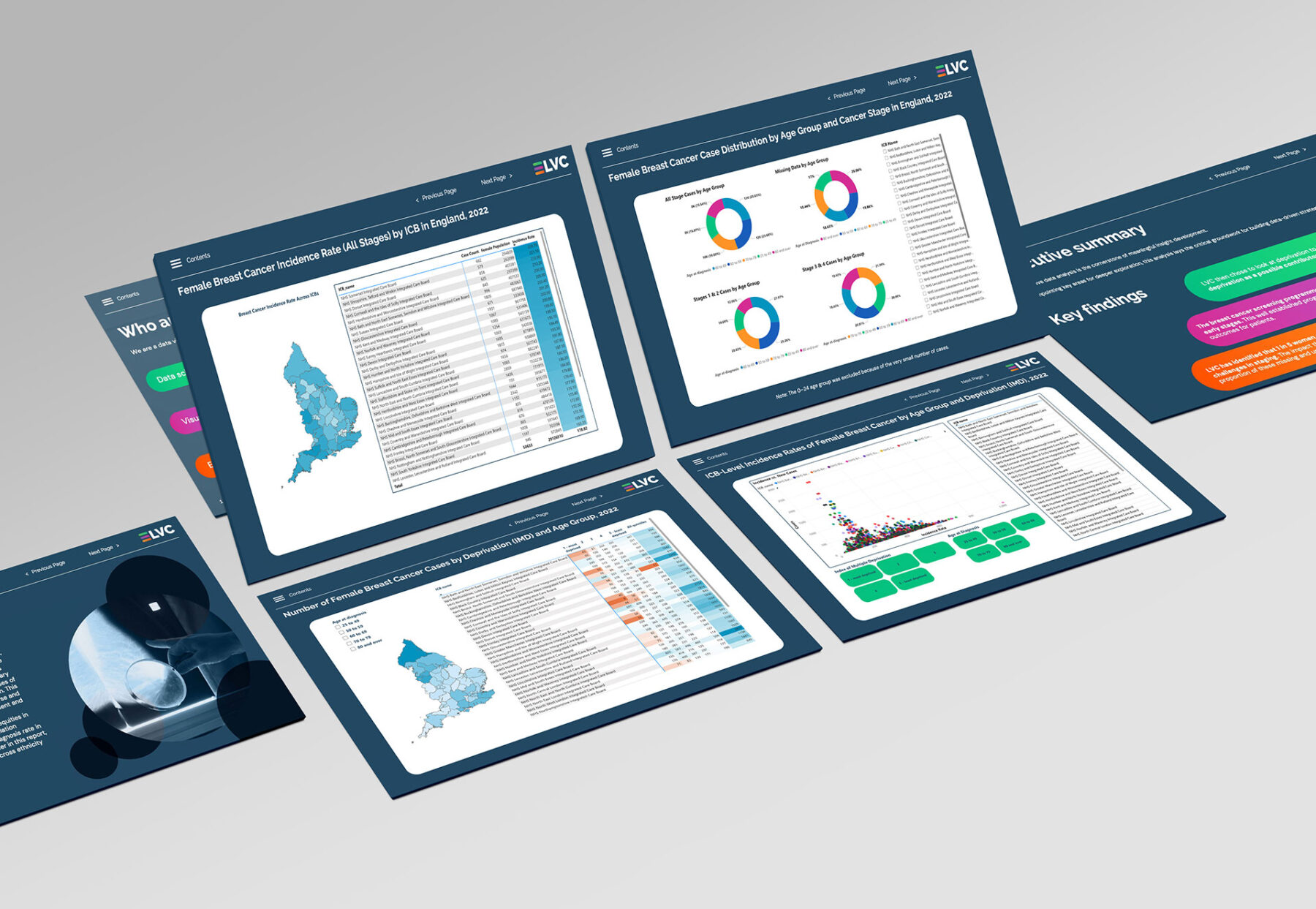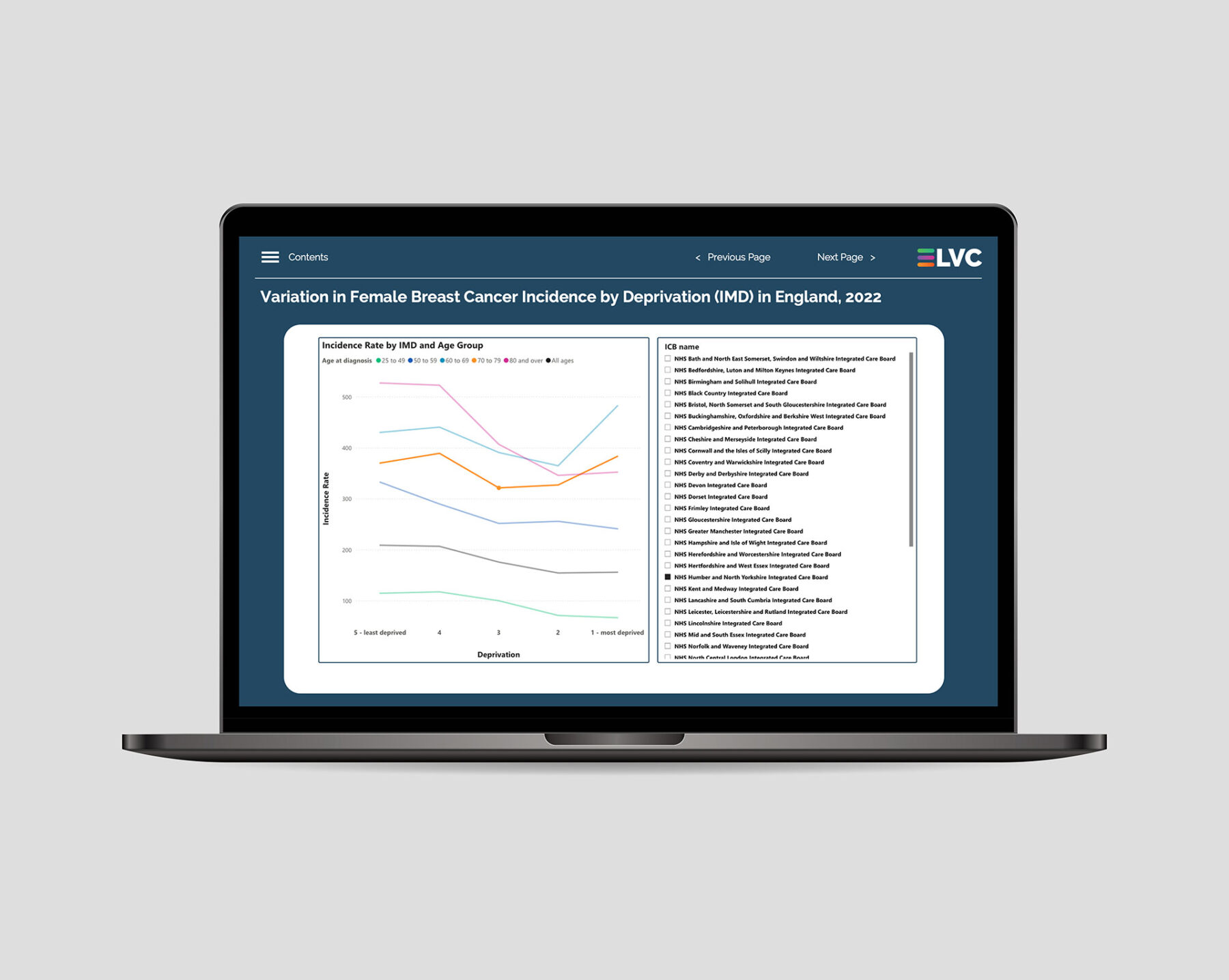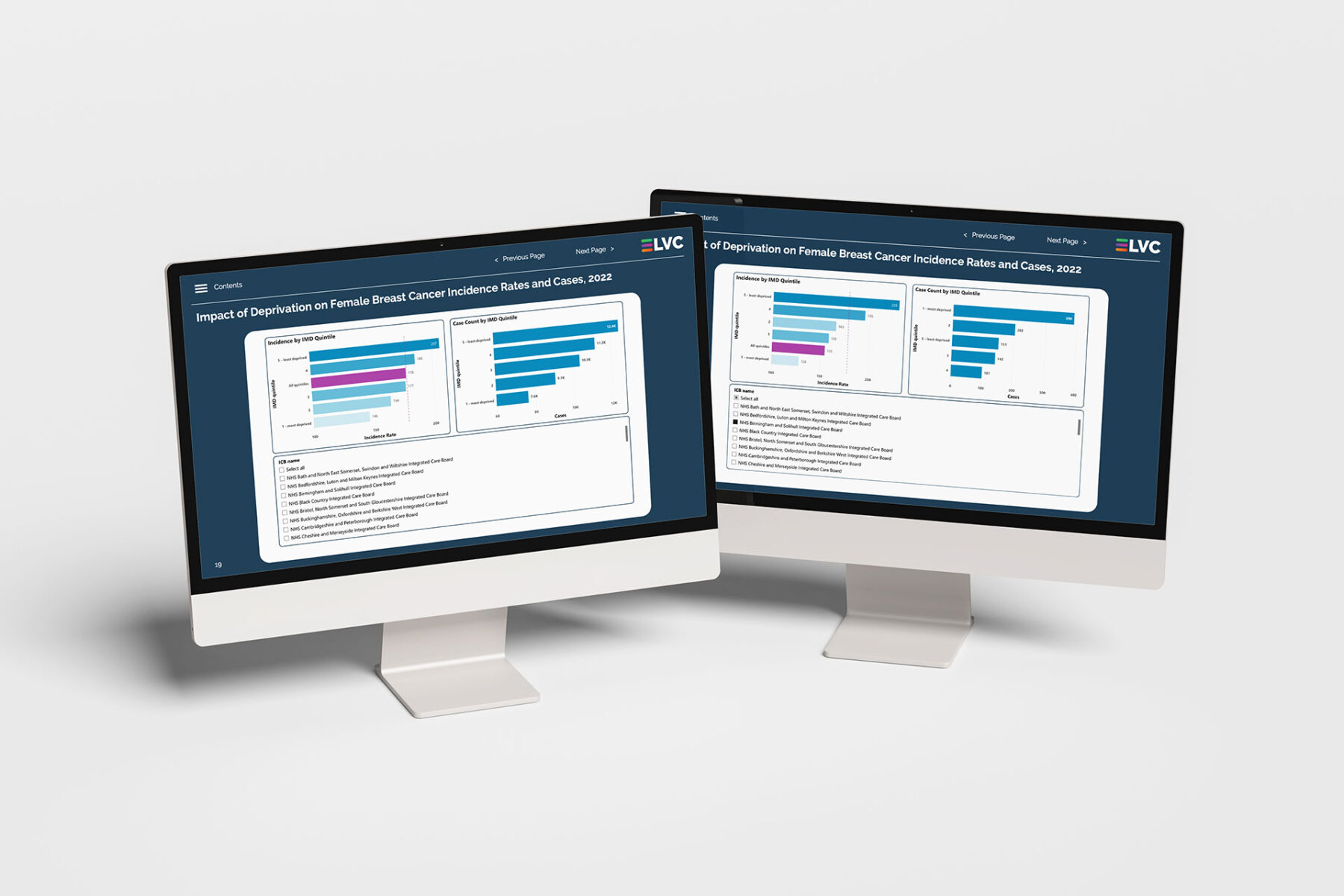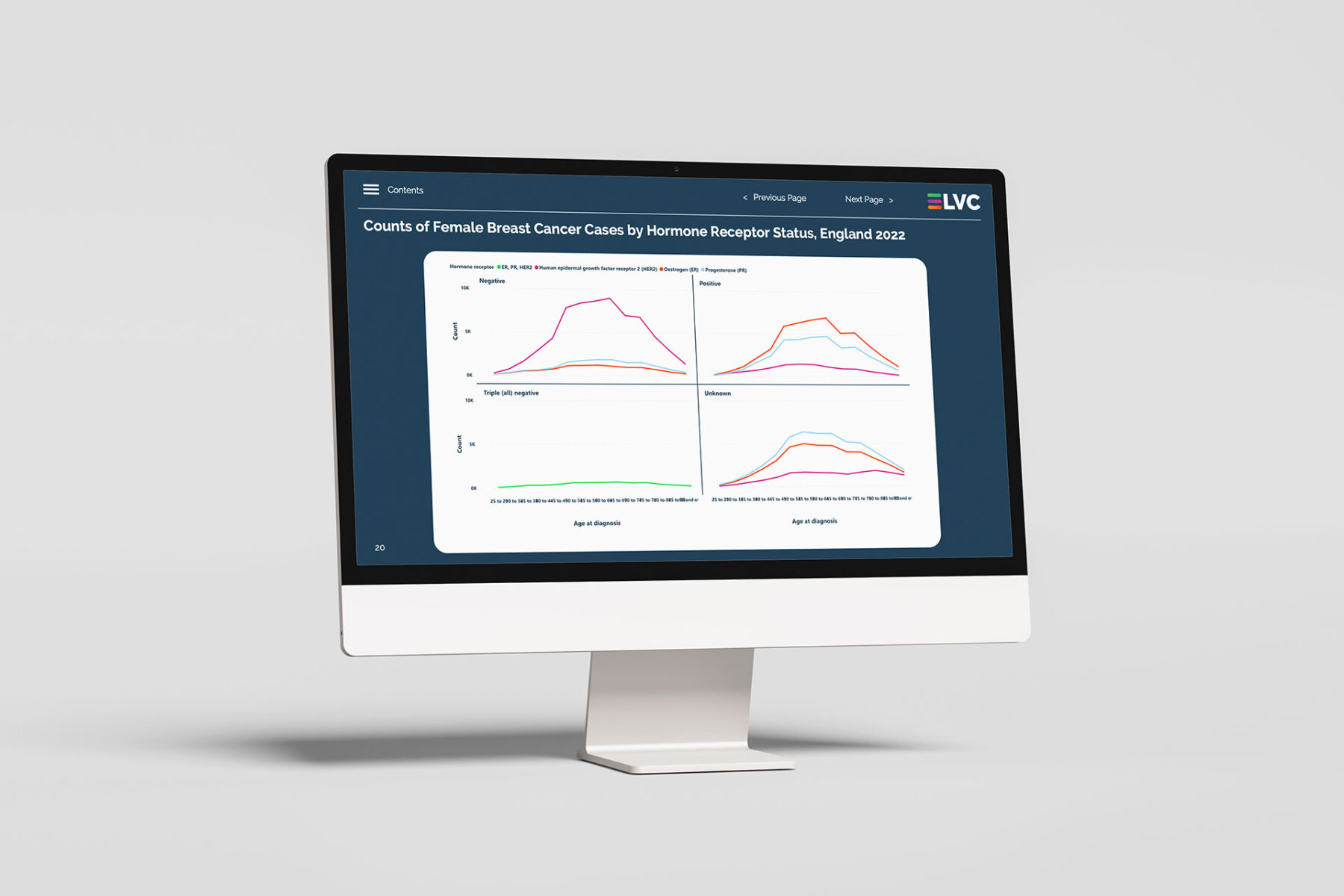Project Summary
Breast cancer is the most commonly diagnosed cancer among women in the UK, with significant disparities in diagnostic incidence across different socioeconomic groups. People with cancer diagnosed at an early stage (stage 1 or 2) have better survival than people diagnosed at a later stage (stage 3 or 4)1. People living in more deprived areas have significantly higher cancer mortality rates compared with those in less deprived areas2.
LVC have chosen to take a more detailed look at inequities in breast cancer and have identified a possible correlation between the index of multiple deprivation and diagnosis rate in breast cancer






